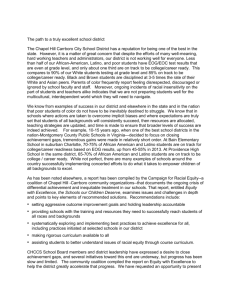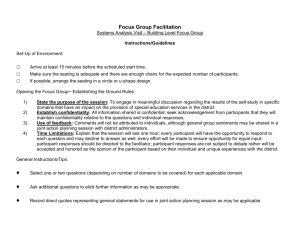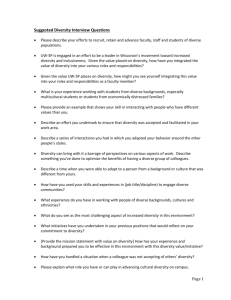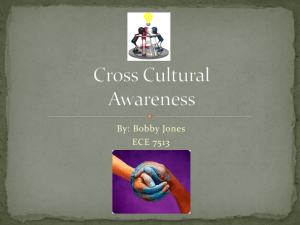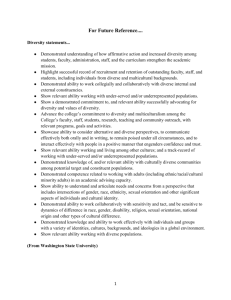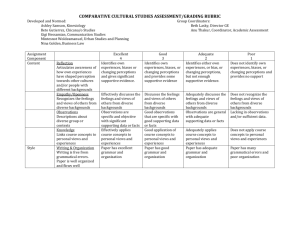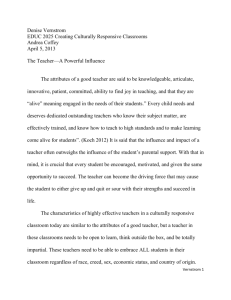Self Assessment
advertisement
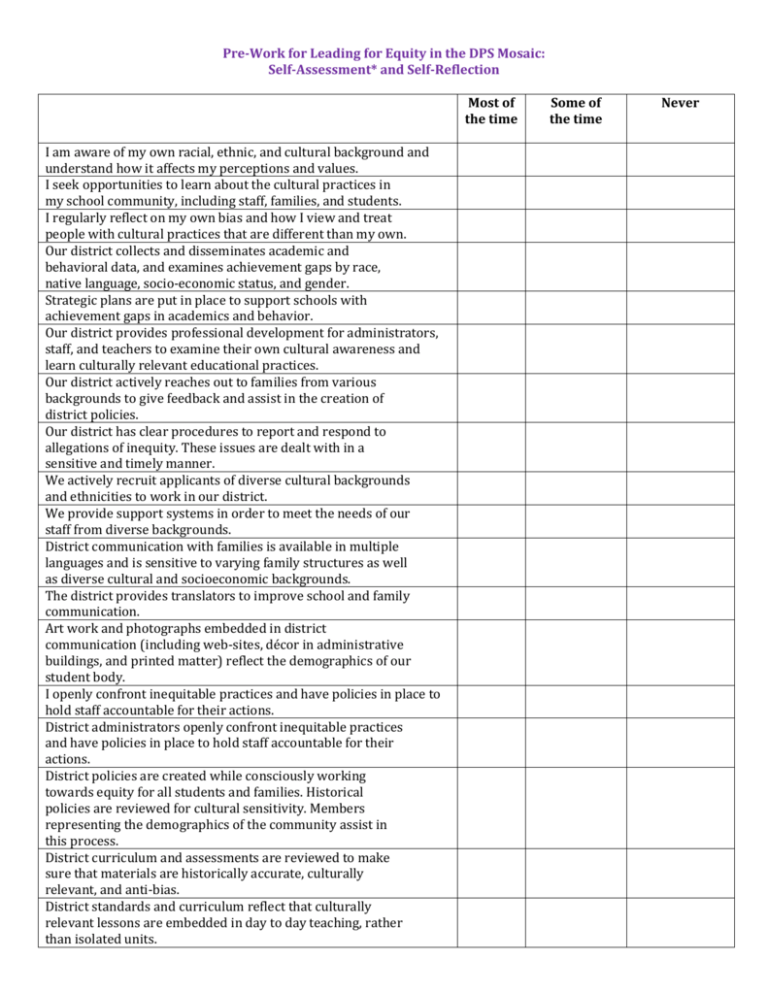
Pre-Work for Leading for Equity in the DPS Mosaic: Self-Assessment* and Self-Reflection Most of the time I am aware of my own racial, ethnic, and cultural background and understand how it affects my perceptions and values. I seek opportunities to learn about the cultural practices in my school community, including staff, families, and students. I regularly reflect on my own bias and how I view and treat people with cultural practices that are different than my own. Our district collects and disseminates academic and behavioral data, and examines achievement gaps by race, native language, socio‐economic status, and gender. Strategic plans are put in place to support schools with achievement gaps in academics and behavior. Our district provides professional development for administrators, staff, and teachers to examine their own cultural awareness and learn culturally relevant educational practices. Our district actively reaches out to families from various backgrounds to give feedback and assist in the creation of district policies. Our district has clear procedures to report and respond to allegations of inequity. These issues are dealt with in a sensitive and timely manner. We actively recruit applicants of diverse cultural backgrounds and ethnicities to work in our district. We provide support systems in order to meet the needs of our staff from diverse backgrounds. District communication with families is available in multiple languages and is sensitive to varying family structures as well as diverse cultural and socioeconomic backgrounds. The district provides translators to improve school and family communication. Art work and photographs embedded in district communication (including web‐sites, décor in administrative buildings, and printed matter) reflect the demographics of our student body. I openly confront inequitable practices and have policies in place to hold staff accountable for their actions. District administrators openly confront inequitable practices and have policies in place to hold staff accountable for their actions. District policies are created while consciously working towards equity for all students and families. Historical policies are reviewed for cultural sensitivity. Members representing the demographics of the community assist in this process. District curriculum and assessments are reviewed to make sure that materials are historically accurate, culturally relevant, and anti‐bias. District standards and curriculum reflect that culturally relevant lessons are embedded in day to day teaching, rather than isolated units. Some of the time Never District curriculum includes differentiation tools to meet the needs of students from varying backgrounds. District policies include how to respect holidays in a manner that is sensitive to the religions and cultural practices of students and families. Staff evaluations include equity related expectations. *The following assessments were adapted from “Minneapolis Public Schools, Positive School Climate Tool Kit, First Edition” by Nancy Papke of the Cherry Creek School District and Kristen Genevieve Davidson. Source: Equity Toolkit, CDE.


